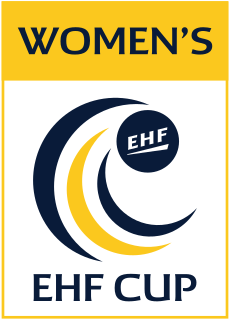
The 2009 World Women's Handball Championship took place from 5 to 20 December 2009 in China. It was the 19th edition of the World Women's Handball Championship and the second that took place outside of Europe. Russia won their fourth title.
The IHF Beach Handball World Championships is an international beach handball competition contested by the men's and women's national teams of the member federations/associations of International Handball Federation (IHF), the sport's global governing body.

France competed at the 2012 Summer Olympics in London, between 27 July and 12 August 2012. French athletes have competed in every Summer Olympic Games of the modern era. The French Olympic Committee sent a total of 330 athletes to the Games, 183 men and 147 women, to compete in 24 sports.

The 2013 World Women's Handball Championship, the 21st event hosted by the International Handball Federation, was held in Serbia on 6–22 December 2013.

The 2015 World Men's Handball Championship was the 24th staging of the World Men's Handball Championship, organised by the International Handball Federation (IHF). The final tournament was held for the first time in Qatar, from 15 January to 1 February 2015. The Qatari bid was selected over those of Norway, Poland and France after a vote by the IHF Council on 27 January 2011, in Malmö, Sweden. This is the third time that the World Championship was hosted in the Middle East And North Africa, after Egypt in 1999 and Tunisia in 2005.
The 1986–87 Women's IHF Cup was the sixth edition of IHF's second-tier women's handball competition.
The 1978 IHF Women's Cup Winner's Cup was the second edition of IHF's competition for women's team handball national cup champions. It was contested by 15 teams, two more than the inaugural edition and ran from 22 January to 23 April 1978. Ferencvárosi TC tightly defeated 2-times European champion SC Leipzig in the final to win its first international trophy.
The 1979 IHF Women's Cup Winners' Cup was the third edition of IHF's competition for women's handball national cup champions. Contested by 15 teams, it ran from January 21 to April 29, 1979, and for the first time the final was a two-legged tie like the preceding rounds.
The 1979–80 IHF Women's Cup Winners' Cup was the fourth edition of IHF's competition for European women's handball national cup champions. Running from 24 November 1979 to 30 March 1980, it was contested by 14 teams, one less than the preceding edition. East Germany, Hungary and the Soviet Union, which had dominated the three first editions, didn't take part in the competition.
The 1980–81 IHF Women's Cup Winners' Cup was the fifth edition of IHF's competition for European women's handball national cup champions. It was contested by 16 teams, two more than the previous edition.
The 1981–82 IHF Women's Cup Winners' Cup was the sixth edition of IHF's competition for European women's handball national cup champions. It was contested by 18 teams, two more than the previous edition, so a preliminary round was introduced.
The 1982–83 IHF Women's Cup Winners' Cup was the seventh edition of IHF's competition for European women's handball national cup champions. It was contested by 20 teams, two more than the previous edition.
The 1983–84 IHF Women's Cup Winners' Cup was the eighth edition of IHF's competition for European women's handball national cup champions. As the previous edition, it was contested by 20 teams. Powerhouses East Germany and the Soviet Union didn't take part in the competition.
The 1985–86 IHF Women's Cup Winners' Cup was the tenth edition of IHF's competition for European women's handball national cup champions. 20 teams entered the competition, three less than in the previous edition.
The 1986–87 IHF Women's Cup Winners' Cup was the eleventh edition of IHF's competition for European women's handball national cup champions.
The 1988–89 IHF Women's Cup Winners' Cup was the thirteenth edition of IHF's competition for European women's handball national cup champions.
The 1989–90 IHF Women's Cup Winners' Cup was the fourteenth edition of IHF's competition for European women's handball national cup champions.
The 1990–91 IHF Women's Cup Winners' Cup was the fifteenth edition of IHF's competition for European women's handball national cup champions.
The 1992–93 IHF Women's Cup Winners' Cup was the seventeenth edition of the European competition for women's handball national cup champions, and the last organized by IHF.

The 2019 IHF World Men's Handball Championship, was the 26th event hosted by the International Handball Federation and held in Denmark and Germany from 10 to 27 January 2019. This was the first IHF World Men's Handball Championship to include more than one host country.







